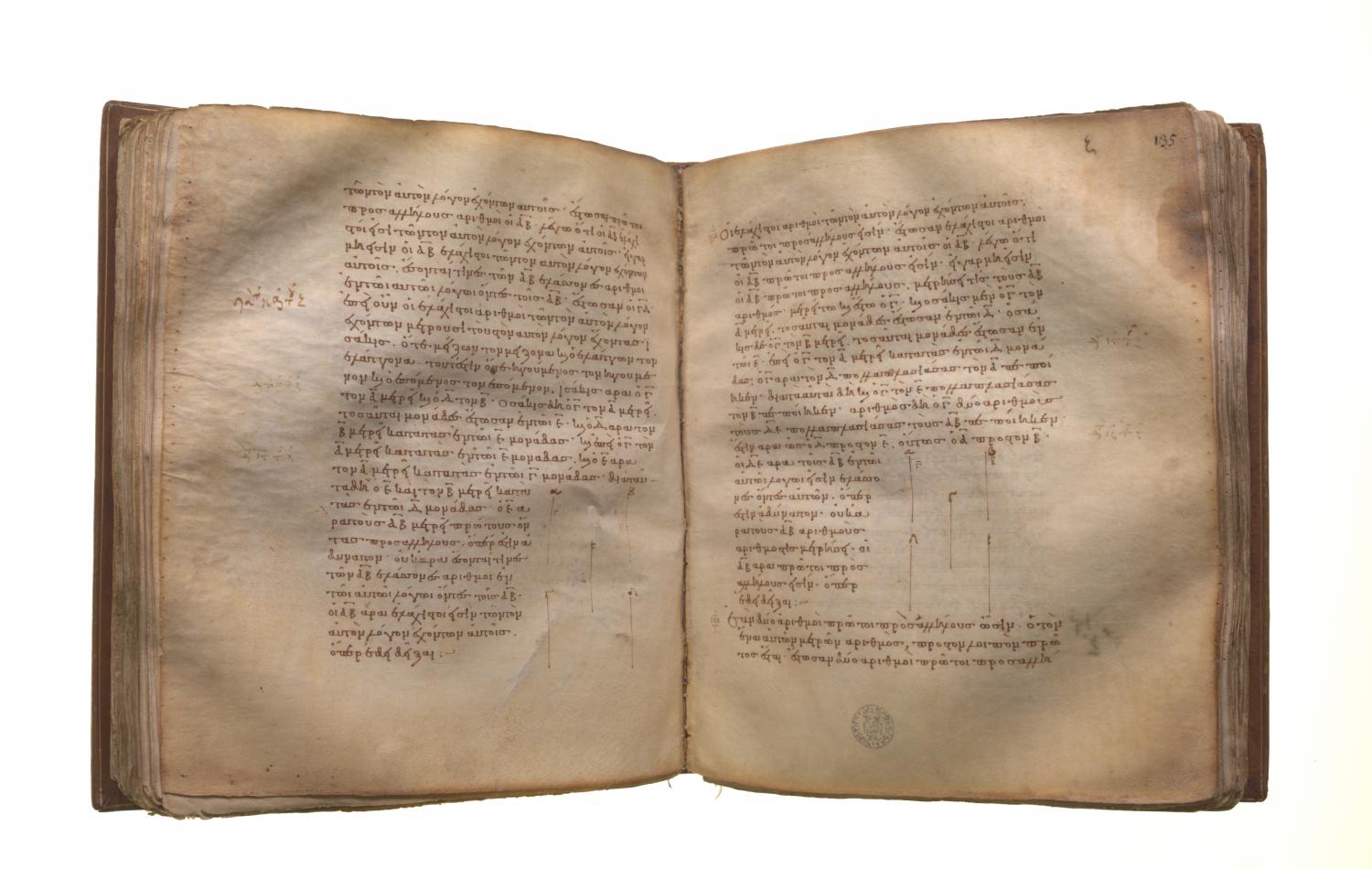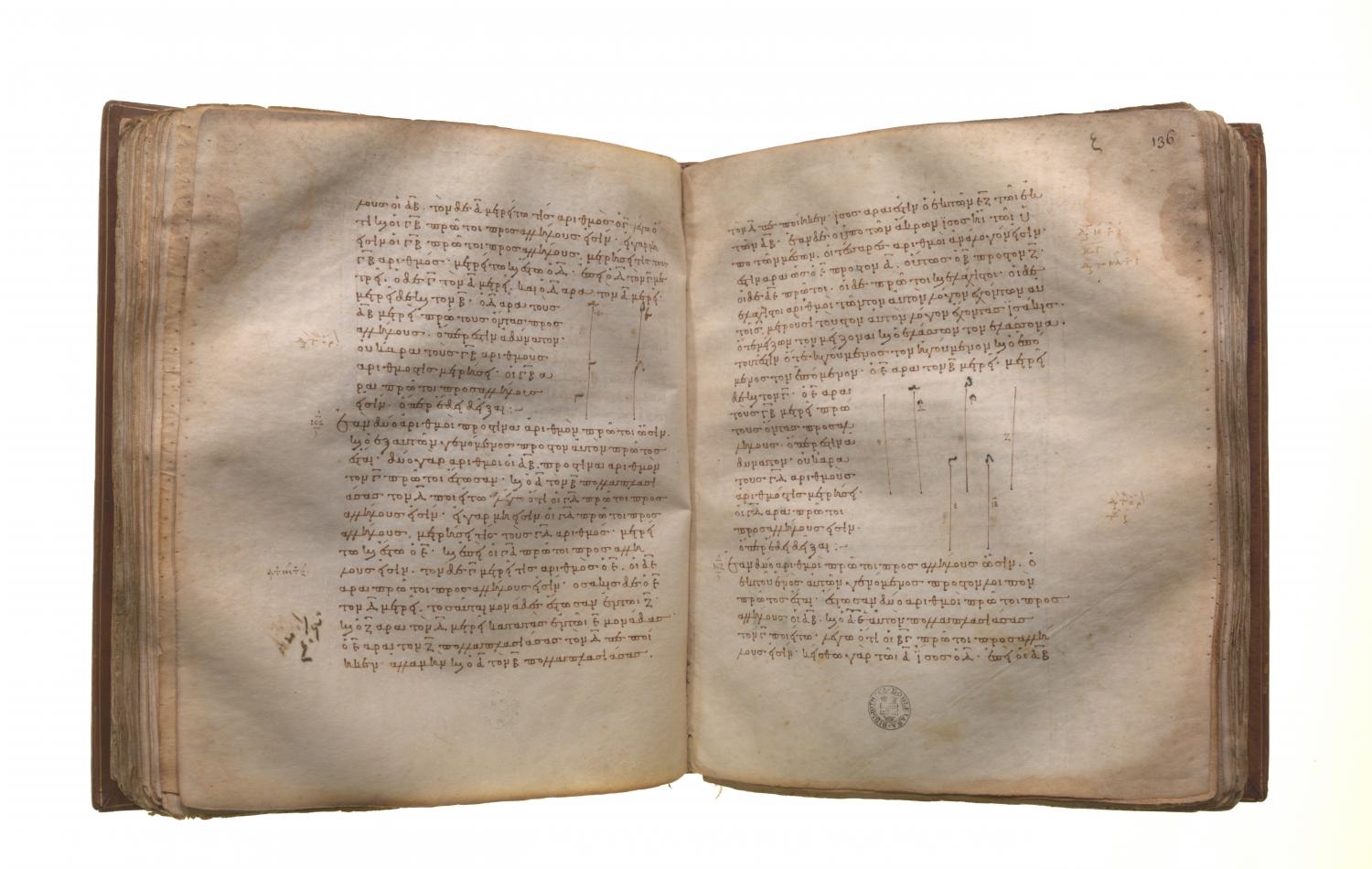Fundamentals of number theory: Book 7 Proposition 23
Translations
Ἐὰν δύο ἀριθμοὶ πρῶτοι πρὸς ἀλλήλους ὦσιν, ὁ τὸν ἕνα αὐτῶν μετρῶν ἀριθμὸς πρὸς τὸν λοιπὸν πρῶτος ἔσται. Ἔστωσαν δύο ἀριθμοὶ πρῶτοι πρὸς ἀλλήλους οἱ Α, Β, τὸν δὲ Α μετρείτω τις ἀριθμὸς ὁ Γ: λέγω, ὅτι καὶ οἱ Γ, Β πρῶτοι πρὸς ἀλλήλους εἰσίν. Εἰ γὰρ μή εἰσιν οἱ Γ, Β πρῶτοι πρὸς ἀλλήλους, μετρήσει [τις] τοὺς Γ, Β ἀριθμός. μετρείτω, καὶ ἔστω ὁ Δ. ἐπεὶ ὁ Δ τὸν Γ μετρεῖ, ὁ δὲ Γ τὸν Α μετρεῖ, καὶ ὁ Δ ἄρα τὸν Α μετρεῖ. μετρεῖ δὲ καὶ τὸν Β: ὁ Δ ἄρα τοὺς Α, Β μετρεῖ πρώτους ὄντας πρὸς ἀλλήλους: ὅπερ ἐστὶν ἀδύνατον. οὐκ ἄρα τοὺς Γ, Β ἀριθμοὺς ἀριθμός τις μετρήσει. οἱ Γ, Β ἄρα πρῶτοι πρὸς ἀλλήλους εἰσίν: ὅπερ ἔδει δεῖξαι.
If two number be prime to one another, the number which measures the one of them will be prime to the remaining number. Let A, B be two numbers prime to one another, and let any number C measure A; I say that C, B are also prime to one another. For, if C, B are not prime to one another, some number will measure C, B. Let a number measure them, and let it be D. Since D measures C, and C measures A, therefore D also measures A. But it also measures B; therefore D measures A, B which are prime to one another: which is impossible. [VII. Def. 12] Therefore no number will measure the numbers C, B.

